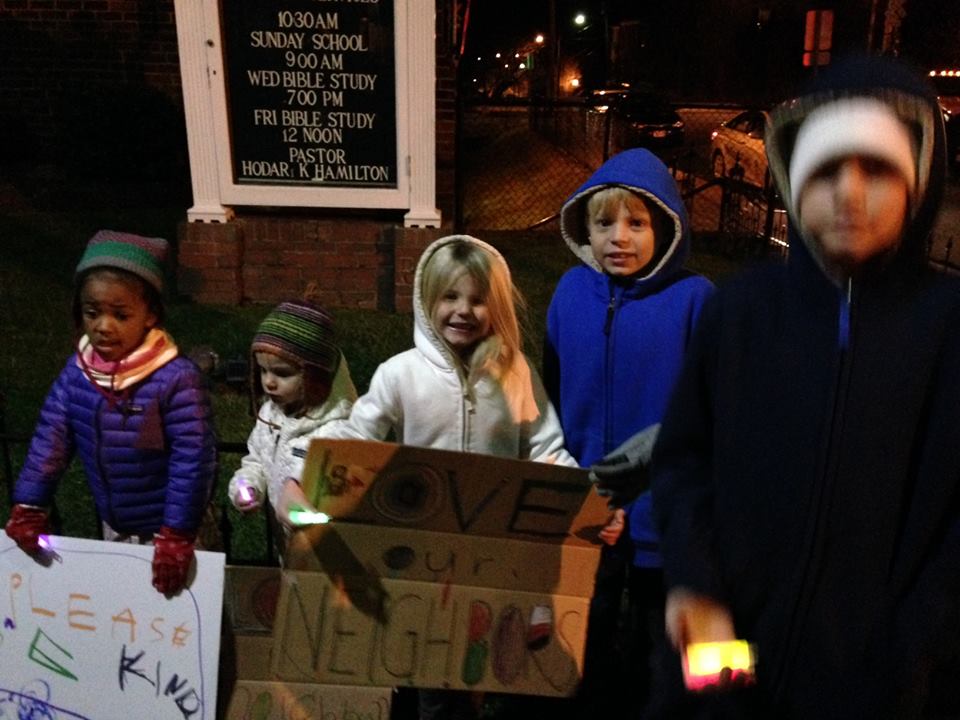An address given to the class of 2015 of the Covenant School of Charlottesville by Karen Wright Marsh, Executive Director of Theological Horizons. May 30, 2015
Good morning, friends: families, faculty and administration—and a very good morning to you, Covenant School Class of 2015! It is a tremendous honor to be with you on this happy occasion and to be a part of the Covenant community for a day I’ll always remember.
Graduates, while you labored over your senior theses this spring—and I know they all turned out to be brilliant papers—I had a research project of my very own. Ever since Mr. Sanker invited me to speak back in the early spring—I’ve been studying hard and I’ve learned a great deal about graduation speeches. I went online, where I found copies of “The Greatest Commencement Addresses of All Time” and “Ten Hilarious Graduation Speeches That Won’t Put You to Sleep.” Two weeks ago my son, Will, graduated from the College of William and Mary. I was so busy taking notes on Condaleeza Rice’s speech that I almost missed seeing Will get his diploma.
This in depth research has led me to one essential conclusion: Every speech must have one joke—at least one. So let’s put that joke out there right now. Are you ready?
So a visitor to Covenant goes into the library, walks up to the front counter and says,“Alright, Uh, so let me get a cheeseburger, large fries and a Coke-no a diet Coke.--please.” Mrs. Spokes is there at the counter and she says, “Um, sir, this is a library.”And the guy says, “Sorry, sorry, sorry….give me a cheeseburger, fries and a diet Coke.”
Want to hear my backup joke?
So one morning Jake Baltes is driving to school. He turns into the Covenant School driveway and he’s got seventeen penguins in his car. A police officer sees Jake and he stops him and he says:“Young man, I don’t know what’s going on here but you’ve gotta take those penguins to the zoo.” Jake says, “OK.”The Next day, Jake’s driving into school again and he’s got the same 17 penguins in the back of his car.The same policeman stops him again and says, “Look, kid, I stopped you yesterday and I told you to take those penguins to the zoo.”Jake’s like, “I took them to the zoo. Today we’re going to the beach!”
Seniors, isn’t it surreal to think that when you arrived on campus an hour ago….that it was the last time you’d come as a Covenant student? You may have come from town on 5th Street extended--onto Stagecoach Road then onto Oak Hill Drive. At the stop sign you took a right onto Hickory Street then it was just a few hundred yards into the upper school driveway. There, with the baseball field on your right and the soccer field on your left, was Covenant upper school laid out before you, with its brick façade and white colonnade—and beyond it, the beautiful mountains
Could you begin to count the times you have made this drive—the mornings you’ve come around on Hickory Street and caught that view of green grass and white columns? If you’ve been at Covenant since 7th grade, you’ve taken the path to and from school well over 2000 times. Parents who dropped off and picked you up, they can double those numbers!
Over your years here, other paths around Covenant School became familiar. You knew the schedules and school policies. You rocked the uniform. You figured out your teachers’ expectations, the best ways to bank community service hours. You cheered for your House and led the younger kids in the ways of Wisdom, Courage, Temperance or Justice (I will show no partiality in this matter). In chapel you heard, week after week, messages grounded in gospel truths—messages about why you were here: to follow Christ’s example and to discover God’s truth in all the things you were studying.
As you grew in friendships, you learned who really would support, care, and comfort you when times got tough—and who would celebrate with you when you got a college admission letter or a soccer win. I hope that you found joyful freedom within the limitations and structure of this well worn territory. Familiar paths can get old, I know that. You may be tired of the same view, the same faces.
Well, today marks your commencement from Covenant. This word “commencement” means a beginning, a new start. And that it is what it is. When you pull out onto Hickory Street this afternoon, you’ll be travelling onto new roads. On the other side of summer you’ll begin college, a job or a gap year.
Let’s take a moment to imagine that that sweltering day in late August when you’ll step out into life at the crossroads. Your family will drop you off with your pile of stuff from Bed, Bath and Beyond—your clothes hamper, desk lamp, an iron you’ll never use. They’ll head back home to your old street and leave you there, surrounded by strangers still unpacking their minivans. Picture yourself standing there in front of your dorm, by yourself…You’ll look up the street. You’ll look down the street. You’ll see sidewalks that head across campus, to places you’ve never been. It will be an awkward, exciting, terrifying, exhilarating, lonely moment-- when you stand alone. And you’ll wonder: Which way now?
When that disorienting moment comes, I want you to remember some very simple words. Take these words and put them into your pocket so you have them on hand. They are from Scripture, from the book of Jeremiah. Here they are:
This is what the LORD says:"Stand at the crossroads and look; ask for the ancient paths, ask where the good way is, and walk in it, and you will find rest for your souls. (Jeremiah 6:16)
As a young traveler—someone who’s left family and the stability of the life at Covenant—this verse can be a guide, a compass for you. The beliefs you may have taken for granted at this Christian school will be challenged in a big way. In the classroom you’ll wrestle with unfamiliar ideas and professors you don’t know.You’ll face tricky social dynamics on Friday nights down fraternity row. You’ll live with folks who come from different religious and moral and ethical points of view.
You will have some hard shipwreck experiences along the way. Some things that have held your world together will unravel. Maybe it’ll be the loss of a romantic relationship, maybe a physical injury or illness, an academic or personal failure; perhaps you’ll discover intellectual concepts that conflict with what you’ve assumed to be true—things that you’ve been taught here at Covenant. Truths that seem clear to you today will be shaken.
In the coming you’ll push off from the safe dock of the beliefs you’ve always held. You will be challenged to think critically about God about the world— about yourself. This is a right and necessary process. It is your work of growing up—to become the one God has created you to be, on your own, as an adult.
What will you do when you’re out there on your own—when the world around you begins to shift? When you stand at the crossroads, which of many paths will you take? Here again are the words from Jeremiah:
This is what the LORD says:"Stand at the crossroads and look; ask for the ancient paths, ask where the good way is, and walk in it, and you will find rest for your souls. (Jeremiah 6:16)
Notice the wisdom here. Stand at the crossroads—Stand, don’t run. At that crazy 6 way intersection, don’t just run down one path in a panic——or chase after the kid who’s already a few steps ahead of you. Stop and stand. This is the time to think, to be smart, to wonder about the person you want to become—and how you’ll get there. Take a deep breath. Pray. Remember God’s close presence with you.
As you stand at the crossroads, Look—yes, there are many unknowns. You’ll choose friends, classes, academic majors. You’ll try out for teams, you might go through Greek rush, you’ll probably choose clubs & fellowship groups. But watch out for the smaller decisions you’ll make—the twists and turns in the course of a day. Will you leave your Bible out on the desk in your dorm room or will you stash it in the drawer? When you go into the dining hall, will you sit with the people you know or will you seek out the girl who’s sitting by herself? If someone hands you a beer, will you take it? Will you catch the van to church or will you sleep in this once?
Look. Open your eyes to discern where these daily choices might take you. You will make choices that you regret—and that’s ok. Some roads will lead to unexpected places.
There at the crossroads, stop and look, be aware that the small turns do set the course for your very long hike—even though you don’t know your destination.
Ask for the ancient paths. Ask where the good way is.
What are these ancient paths? I’m not going to claim that just because something is old and traditional it’s better; I wouldn’t take back my iphone 4 for anything. You studied enough history to know that uncritical nostalgia about times past can get you into big trouble. And I’m guessing that when you start on your fabulous new adventures in the fall, you’ll be ready to explore some completely new turf. You won’t be making a U turn back here Fifth Street Extended. God is all about creating new things, about enlarging your boundaries and taking you past the edges of where you’re comfortable. God wants to you to grow.
So let’s go to Scripture for clues about these old paths. Proverbs 12:28 says, “In the way of righteousness there is life; along that path is immortality. These ancient paths of righteousness are given to you out of God’s marvelous love and mercy. Psalm 107 promises when you’re lost and desperate and call out to God, God will rescue you. God will your feet on a wonderful road—a path that takes you straight to good places. Jesus himself declares "I am the way" and he‘s already told us what to do: take the narrow way!
Jeremiah tells you to Ask where the good way is. When you’re at a confusing, crossroads moment—well, that’s a really good time to seek advice. Look to the people whom you admire, people that you want to be like. If you can’t text them from the intersection, just Ask yourself: Which path would they take? Across the centuries, many of your older brothers and sisters in the faith have called out to God for help. If you’re at the University of Virginia, come to the Bonhoeffer House for lunch with me on Fridays as we explore Vintage readings. There’s so much amazing wisdom in lives of faithful Christians who have been this way before. Christ followers have marked the trail for you already. It’s a good way that will bring you Joy and life. So there’s no need to go stumbling into the thorny bushes on your own just to blaze a trail.
Check out the old maps. Remember all you’ve learned here at Covenant. You are headed out there with the rare gift of a Christian worldview, an understanding of the universe and your place in it –where you are a loved child of God.
Stand. Look. Ask for the good way. Then Walk in it. ----
Maps don’t do much good in the bottom of your backpack. Take the truths you know in your head. Consider the counsel of mentors & friends—and then go live it out. Walk in it—every day. Practice the Spiritual, relational, even academic habits that keep you moving along the good old road. It takes time to build habits. You’ll get there by walking every day, not running. And then find companions and mentors who will hike along with you, who want to follow in the way of Jesus, too.
The final words of this short verse promise that You will find rest for your soul---
In a world of anxiety, fear, perfectionism, pressure, you can find rest—You can have the assurance that you are headed in the right direction, in God’s hand, on a path that’s been worn down by travelers before you.
In the coming years, will you ask for the ancient paths? And if you find the good way, will you walk in it? Will you find rest for your soul?
I pray that you will walk in the confidence and hope of Christ. That you will have courage to live and learn boldly. And remember that the roads to Covenant School will still be here; you know the way to Hickory Street by now.
Before I leave you, a blessing:
May the peace ofJesus Christ go with you : wherever he may send you; may he guide you through the wilderness : protect you through the storm; may he bring you home rejoicing : at the wonders he has shown you; may he bring you home rejoicing : once again into our doors. Amen.











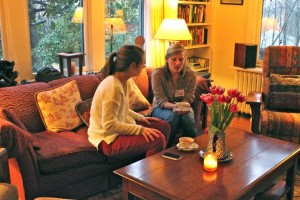




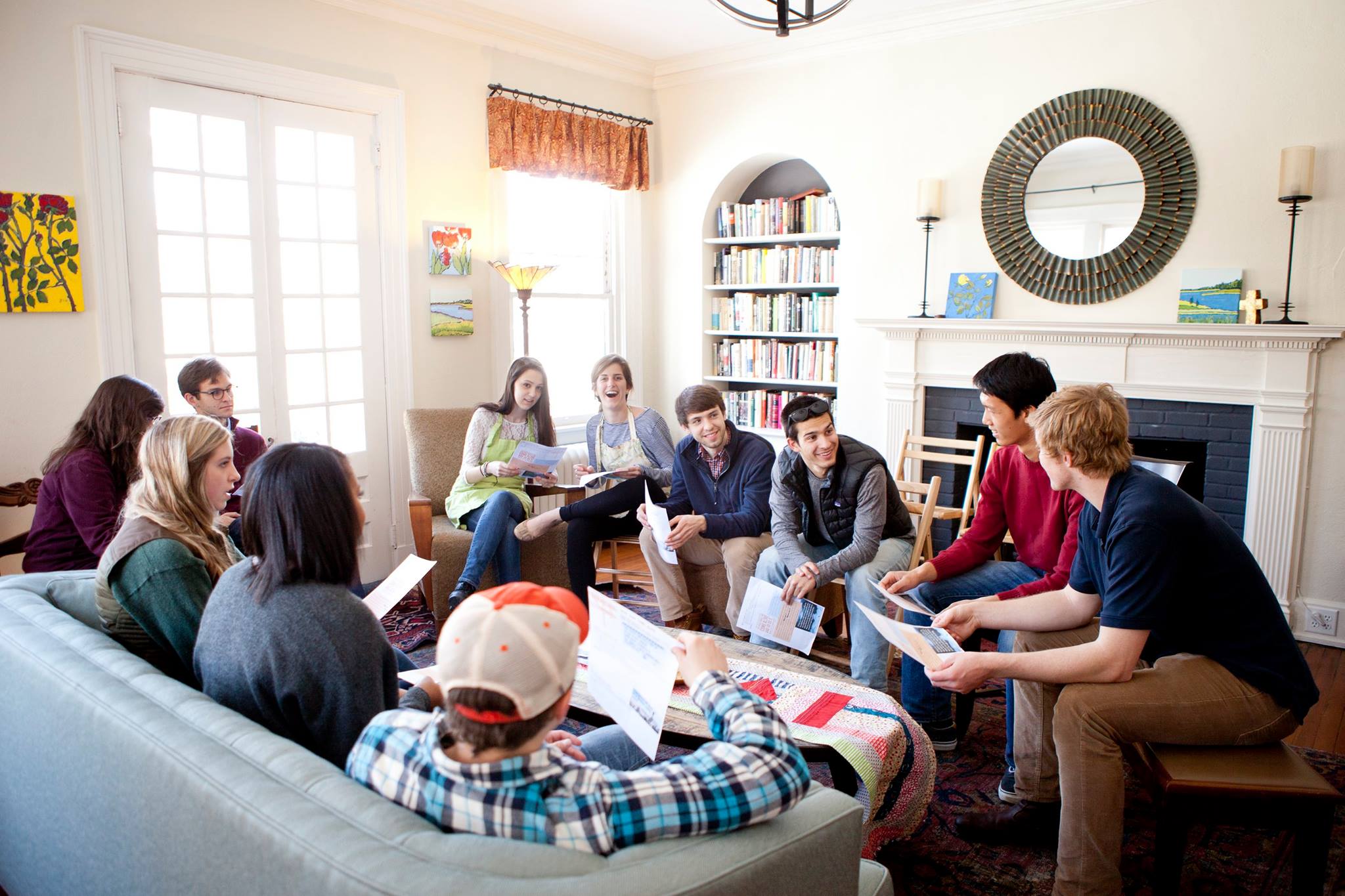 It’s pretty undeniable—the Bonhoeffer House is a cool place to be around. Throughout the end of my undergrad career, I fell in love with the way that Theological Horizons bridges the gap between the academy and faith communities that surround the University. I was looking for a place that I could come to with my faith tradition and ask questions and be skeptical. The Bonhoeffer House became that sacred space for me.
It’s pretty undeniable—the Bonhoeffer House is a cool place to be around. Throughout the end of my undergrad career, I fell in love with the way that Theological Horizons bridges the gap between the academy and faith communities that surround the University. I was looking for a place that I could come to with my faith tradition and ask questions and be skeptical. The Bonhoeffer House became that sacred space for me. Kaylee Lucas is an M.S. Commerce student from Richmond, VA. She studied Religious Studies in my undergraduate career at UVA and spent a lot of time at the Bonhoeffer House. Last summer, she traveled to Kenya and worked at a microfinance loan hub. Kaylee hopes to integrate a concern for human flourishing with her practical business skills from the Comm school.
Kaylee Lucas is an M.S. Commerce student from Richmond, VA. She studied Religious Studies in my undergraduate career at UVA and spent a lot of time at the Bonhoeffer House. Last summer, she traveled to Kenya and worked at a microfinance loan hub. Kaylee hopes to integrate a concern for human flourishing with her practical business skills from the Comm school. Fourth-year of college brings quite the interesting series of dilemmas. We seek jobs, degrees, friends, companions, roommates, apartments, and of course, the perfect ending to a college experience. What many fourth-years may not consider is who might be seeking us. What is God seeking for us as we depart from our undergraduate lives? Our tender, early-twenties hearts ache for a clear calling. Through my experience with Theological Horizon’s Fellows program, I lent my ear to God and learned to eagerly and patiently await my calling - my vocation.
Fourth-year of college brings quite the interesting series of dilemmas. We seek jobs, degrees, friends, companions, roommates, apartments, and of course, the perfect ending to a college experience. What many fourth-years may not consider is who might be seeking us. What is God seeking for us as we depart from our undergraduate lives? Our tender, early-twenties hearts ache for a clear calling. Through my experience with Theological Horizon’s Fellows program, I lent my ear to God and learned to eagerly and patiently await my calling - my vocation. Keith Wilson is a fourth-year student from Louisville Kentucky and is studying Leadership and Public Policy at the Batten School. Keith's hobbies range from singing with his a cappella group, brewing a nice pot of tea, playing squash, and artisanal sandwich making/eating. It is his goal to one day own an upscale gas station/convenience store and teach at his alma mater, Trinity High School in Louisville, Kentucky.
Keith Wilson is a fourth-year student from Louisville Kentucky and is studying Leadership and Public Policy at the Batten School. Keith's hobbies range from singing with his a cappella group, brewing a nice pot of tea, playing squash, and artisanal sandwich making/eating. It is his goal to one day own an upscale gas station/convenience store and teach at his alma mater, Trinity High School in Louisville, Kentucky.
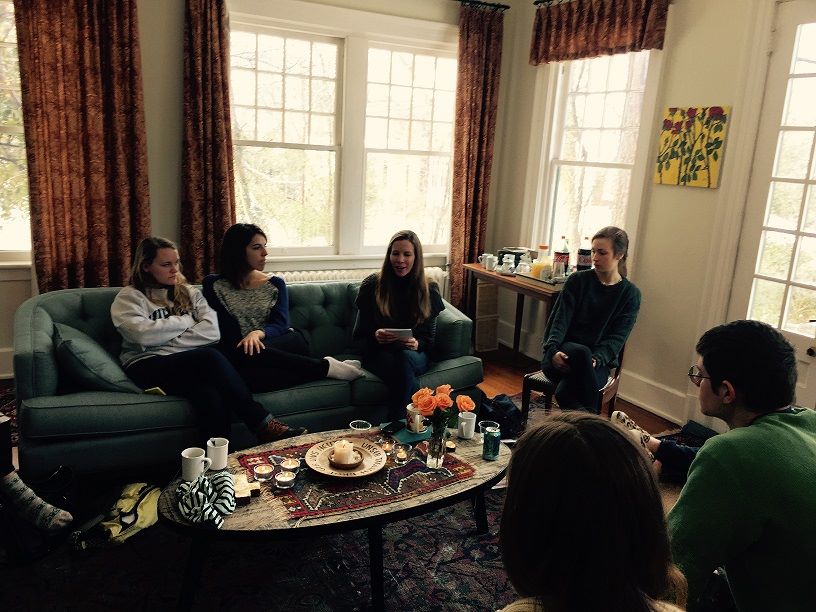 As I reflect on the fellows retreat, the concept of hospitality consistently comes to mind.
As I reflect on the fellows retreat, the concept of hospitality consistently comes to mind.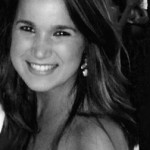 Jewel Crosswell is a fourth year majoring in Global Development Studies and Religious Studies. She is the co-editor of a weekly newsletter and participates in a local anti-trafficking initiative called the Charlottesville Justice Initiative. This past summer, she interned at International Justice Mission, an international human right agency dedicated to protecting the poor from violence. She loves to travel, run, hike, read, and spend time with friends
Jewel Crosswell is a fourth year majoring in Global Development Studies and Religious Studies. She is the co-editor of a weekly newsletter and participates in a local anti-trafficking initiative called the Charlottesville Justice Initiative. This past summer, she interned at International Justice Mission, an international human right agency dedicated to protecting the poor from violence. She loves to travel, run, hike, read, and spend time with friends
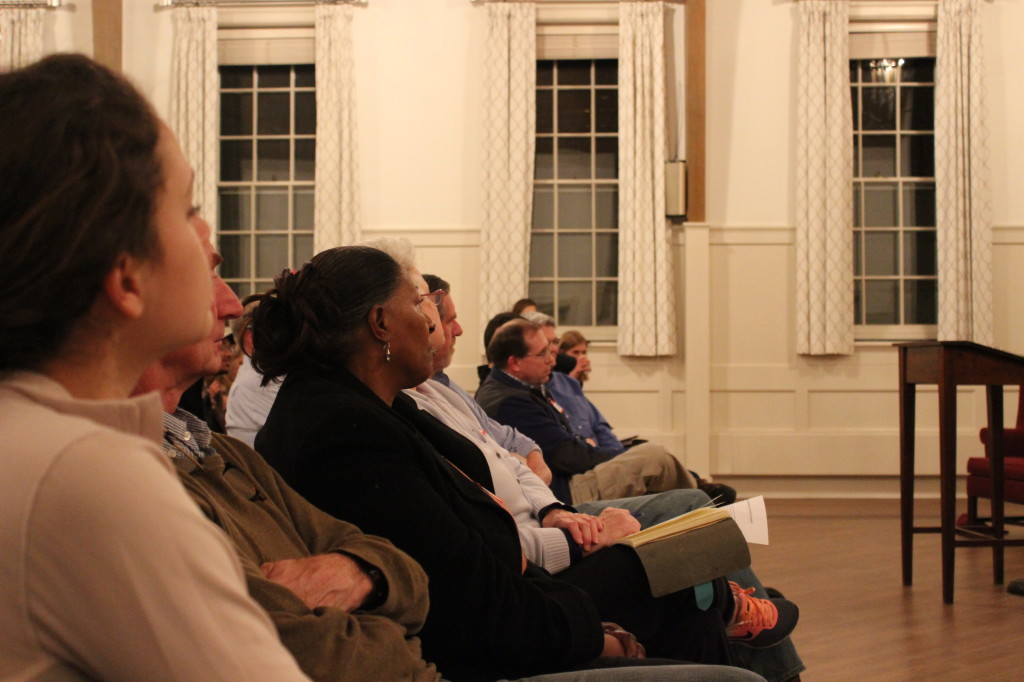
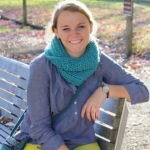 Carly Misenheimer is a fourth year from High Point, North Carolina. She is a Religious Studies Major, and she is writing her Distinguished Majors Thesis on the language of naming God in Feminist Theology. She hopes to attend Divinity School after graduation. She leads Young Life College at UVA, and she enjoys singing, hiking the Blue Ridge Mountains, Cheerwine and spontaneity.
Carly Misenheimer is a fourth year from High Point, North Carolina. She is a Religious Studies Major, and she is writing her Distinguished Majors Thesis on the language of naming God in Feminist Theology. She hopes to attend Divinity School after graduation. She leads Young Life College at UVA, and she enjoys singing, hiking the Blue Ridge Mountains, Cheerwine and spontaneity.